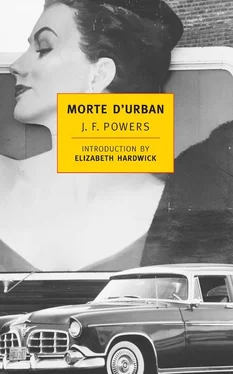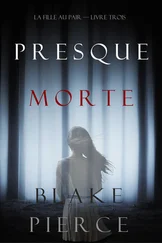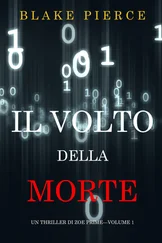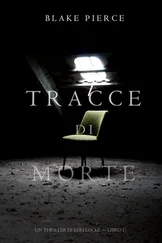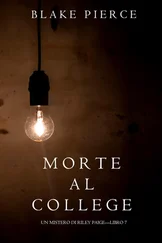Father Urban found himself questioning some words of his uttered some years earlier, words widely quoted in the Catholic press. He had said that television, this new medium about which many seemed to be having doubts, could and would be a great force for good, and in saying this, he had more than anticipated the thought of the late pontiff (who was to say “could” but not “would”). Unlike Bishop Sheen who was to say, “Television is a blessing,” and who perhaps had his own program in mind, Father Urban hadn’t been in a position to know what he was talking about. His own work had kept him in ignorance of the new medium, and if he happened to enter a room when a set was on, the chances were it would be switched off — because he was rated a greater attraction. Of course, he had watched such events as the World Series and the Kentucky Derby, but the regular fare, what he was seeing in the evenings now, no, he really hadn’t known about it.
But whatever one might think of the programs — and Wilf and Brother Harold seemed to think pretty well of them — there was no getting around the fact that television had come to stay. The problem it posed was an old one: how to make what was generally accepted more acceptable, i.e., how to make an honest woman of a whore. Probably no one man could do it. Obviously, Bishop Sheen hadn’t. Father Urban’s own opportunities had been all too few and slight: a prayer for use where it was the custom for a clergyman to sign off the station; a series of three-minute talks especially suitable for Lent, these on defective film to which the Order held residual rights; and two appearances “live,” making the Stations of the Cross and participating in a panel discussion of juvenile delinquency, the latter on educational TV. In short, Father Urban hadn’t had a decent chance to show what he could do in the new medium. It troubled him that a Billy Graham or an Oral Roberts was seen and heard by more souls in an evening than Our Lord and his disciples had preached to in all their travels — and, to tell the truth, Father Urban wasn’t too happy about Bishop Sheen, either. It could be that Father Urban would yet make the new medium his own, perhaps when his days of travel were over, assuming, of course, that they weren’t already over. And now — speaking to you from his study at the Novitiate of the Order of St Clement — Father Urban .
For the present, however, Father Urban was just another viewer. With Wilf at the controls, they went through the evening, through the prime time, through the news, weather, and sports, and into the old movies, which made it harder to get up in the morning. Perhaps the set’s living color left something to be desired, because they were in a fringe area, to say the least of it, but color programs were rare. The set gave them a good, clear picture of what there was to see, and it also threw off heat that even the refectory, the only warm room in the house, could use on those very cold nights right after Christmas. While viewing, they sampled the liqueurs and meats and cheeses from Billy’s hamper, and consumed kettles of popcorn fresh from Brother Harold’s kitchen. It was, after all, even there, the festive season.
The only light came from the set and the Christmas tree, and so it was no longer possible for Wilf to read the papers, for Brother Harold to do his homework, or for Father Urban and Jack to play checkers in the evening. Probably Jack was the only one to regret the passing of their old way of life. His eyes weren’t up to the strain of prolonged viewing, but fortunately he didn’t have the appetite for it that the others had at first. He’d doze off and come to saying, “What’s this?” And Wilf would say, “Oh, he’s a bush pilot, and he’s trying to find this girl’s father. She’s a Broadway star. Looks a lot like the country around here, doesn’t it?”
There were moments in the evening, though, when Father Urban, instead of being carried away on the wings or saddle of adventure, nodded in his chair, for the days right after Christmas were much like those that had gone before.
On the day after Christmas, early in the morning, Wilf led them to the rear of the corridor that ran between the parlors and the library on the one side and the chapel on the other, and revealed to them his plan for a sacristy. The plan called for the corridor to become a blind alley except in case of emergency, and for the back stairway to be abandoned (except in case of emergency), and for the solid wall between the corridor and the chapel to be breached for a doorway — all this for a temporary sacristy.
“Better no sacristy at all,” said Father Urban, when he’d heard Wilf’s plan.
“A religious community is judged by its facilities for worship,” Wilf replied. “We owe it to ourselves and visiting clergy to have a sacristy. And to Our Lord.”
Jack, by tapping on the wall, by pushing on it, and by shaking his head, had shown where his sympathies lay, but at the mention of Our Lord, Father Urban saw Jack drop his hands and take leave of his senses.
Wilf, however, wanted everybody on his side — as well he might for such a project. “What we should do, Urban, I agree, is add on.”
“Agree? Add on? I don’t know what you’re talking about, Father.”
“Add on from the outside, Father. That was the original plan, and then, when winter snuck up on us, I hit upon the present plan — as a temporary solution.”
“As such it has its advantages,” said Father Urban, feeling that any more discouraging comment from him might drive Wilf back to the original plan, and then where would they be? They’d be working outdoors in the middle of winter, taking on the exterior wall, a wall of stone. Why, if they disturbed the vines, they might even bring the house down.
And so Father Urban went along with the others, and with hammer, scout ax, hacksaw, in a cloud of dust and grit he worked along with them. But he wasn’t the team man he’d been on the previous job. During his lunch hour, he took a nap from which he sometimes had to be summoned by Brother Harold (“Father wonders if you’re all right, Father”), and sometimes, during working hours, he went up to his room, and made no bones about it, for a snort (“I find it cuts the dust”). A good part of his working day was spent in wandering back and forth between the lavatory and the job. Yes, he knew what he was, a disgruntled employee blowing himself to a bit of company time, but he didn’t care, and he didn’t give the boss quite enough cause to complain. However, it got so that the employee knew what to expect if, in his journeys to and from the lavatory, he paused too long at a window for a look at the outside world. He knew that the boss would soon come along and offer him a cigarette — there was no use trying to smoke a cigar if you did the kind of work they did — and then a light. There they’d be, then, just a couple of average guys such as they saw in the evening on television, taking their well-earned break, smoking the right brand of cigarette and married to a couple of average gals who, at that very moment, on another channel, were washing their husbands’ dirty work clothes with the right brand of detergent. And the chances were that the employee would make the first move back to the job. Mighty clever people, these Bohunks!
Father Urban worked, when he worked, in a quiet rage. In any other time and place, it seemed to him, a man like Wilf would have known better than to enter religion, or, having made that mistake, would have been required to make the best of it. As it was, Wilf was doing pretty well as a workman — more than should be expected of a priest — and as a priest, you might say, he was doing pretty well for a workman. Even a day laborer, and certainly a carpenter or a painter, had to measure up to the competition — otherwise he’d be out of a job, and his wife and family would suffer. Why shouldn’t Wilf, as priest and rector, be subject to the same law? In a very real sense, Wilf had a family now, and they were suffering. Didn’t he know this? Didn’t he care?
Читать дальше
